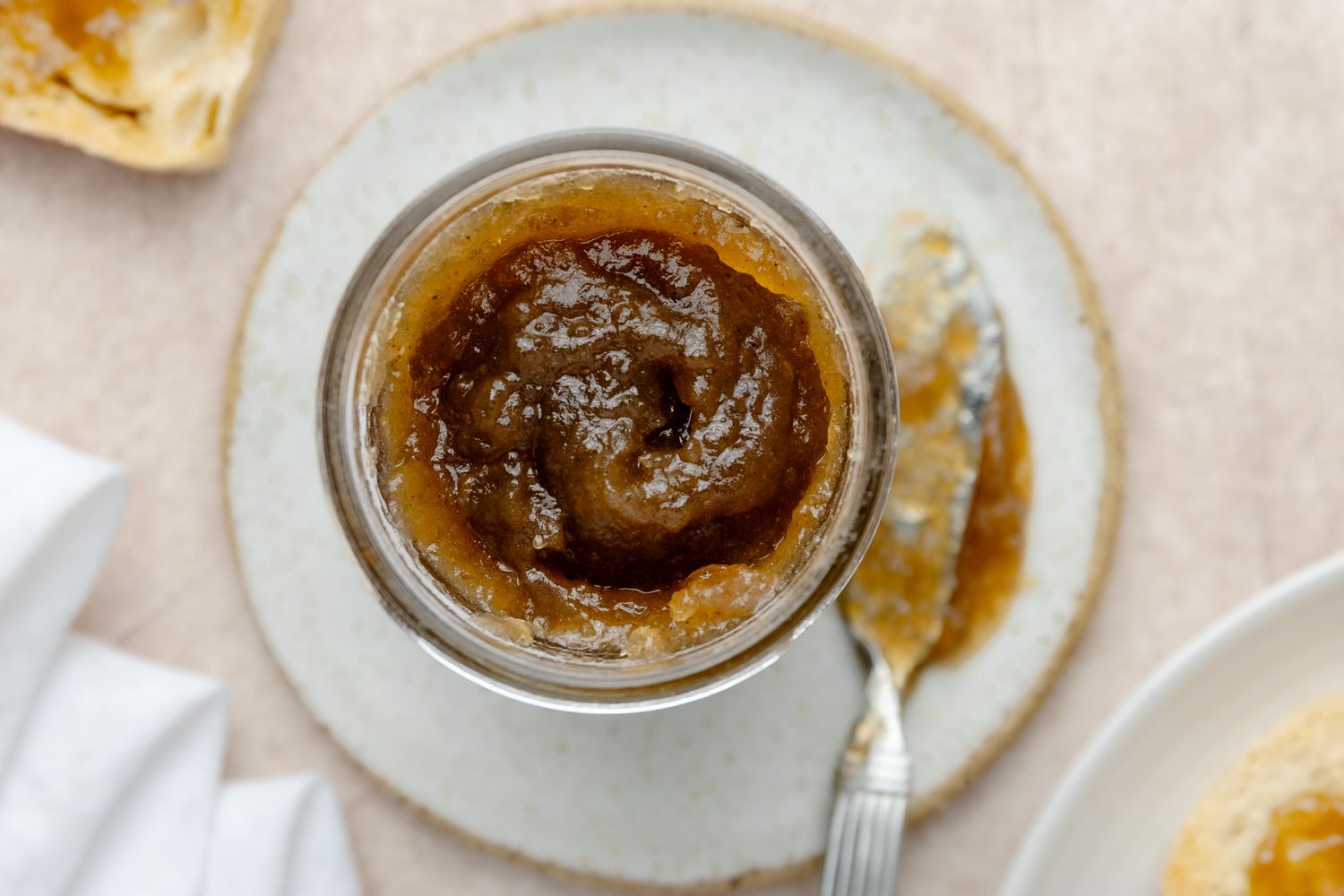

Articles
How To Store Apple Butter
Modified: August 17, 2024
Learn how to properly store apple butter to keep it fresh and flavorful for longer. Discover useful tips and techniques in this informative article.
(Many of the links in this article redirect to a specific reviewed product. Your purchase of these products through affiliate links helps to generate commission for Storables.com, at no extra cost. Learn more)
Introduction
Welcome to our guide on how to store apple butter! If you’re a fan of this delectable spread, you know just how versatile and delicious it can be. Whether you’ve crafted your own homemade apple butter or purchased some from a local farmer’s market, knowing how to store it properly is essential for maintaining its flavor and texture. In this article, we’ll discuss what apple butter is, the reasons for storing it, and the factors to consider before embarking on the storing process.
Apple butter, for those who may not be familiar, is a smooth and thick fruit spread made by slow-cooking apples with sugar, spices, and often a touch of lemon juice. The long, slow cooking process caramelizes the sugars in the apples, resulting in a rich and deeply-flavored spread that can be enjoyed on toast, pancakes, or even used in baking recipes. It’s a classic fall treat that brings warmth and nostalgia to any meal or snack.
Now, you may be wondering why storing apple butter is necessary. Well, there are a few reasons. Firstly, if you’ve made a large batch of apple butter or received a generous amount as a gift, you’ll want to ensure it stays fresh for as long as possible. Secondly, apple butter can be seasonal, and you may want to enjoy it throughout the year, especially if you’ve found a particular recipe you love. Lastly, proper storage can help maintain the taste and quality of the apple butter, preventing it from spoiling or losing its rich flavors over time.
Before we dive into the specifics of storing apple butter, there are a few factors to consider. The first is the type of apple butter you have. Homemade apple butter may have different ingredients and consistencies than commercially produced ones. Additionally, the storage method may differ depending on whether your apple butter is canned or refrigerated. It’s important to understand these variations and choose the appropriate storage method accordingly.
Another factor to consider is the expiration date of your apple butter. While homemade apple butter may not have an official expiration date, it’s a good practice to label your jars with the date they were made. This will help you keep track of how long they’ve been stored and when it’s time to use or discard them. For commercially produced apple butter, check the label for any recommended storage guidelines or expiry dates.
In the following sections, we’ll provide you with a step-by-step guide on how to store apple butter, whether it’s homemade or store-bought. We’ll also share some tips to ensure that your apple butter stays fresh and delicious for as long as possible. Let’s get started!
Key Takeaways:
- Properly storing apple butter is crucial for preserving its rich flavors and creamy texture, whether homemade or store-bought. Consider factors like container choice, expiration dates, and storage conditions to ensure maximum freshness.
- By following a step-by-step guide and implementing helpful tips, you can extend the shelf life of apple butter and enjoy its delightful taste throughout the year. Label containers, avoid temperature fluctuations, and practice proper hygiene for optimal storage.
Read more: How To Clean A Copper Apple Butter Kettle
What is Apple Butter?
Apple butter is a luscious spread made from apples that have been slow-cooked and blended to perfection. While the name might suggest a butter-like consistency, apple butter is actually more akin to a fruit preserve or jam. It is created by cooking down apples with sugar, spices, and sometimes a hint of lemon juice until the mixture reaches a thick and smooth texture.
The process of making apple butter involves simmering a mixture of apples and other ingredients for an extensive period of time. This slow-cooking method allows the sugars in the apples to caramelize and develop a deep, rich flavor. The result is a velvety smooth spread with a hint of sweetness and warm notes of cinnamon, cloves, and nutmeg.
Apple butter has a long history and is deeply rooted in American culinary traditions. It was originally a way to preserve the abundant apple harvests, as the slow-cooking process helps to extend the shelf life of the fruit. Early settlers would prepare large batches of apple butter in copper kettles over an open fire, stirring it continuously until it reached the desired consistency.
Today, apple butter is enjoyed as a beloved condiment and ingredient in a variety of dishes. It’s commonly spread on toast, bagels, or biscuits for a delightful breakfast or snack. The rich and fruity flavor also makes apple butter a popular addition to desserts like pies, cakes, and turnovers. Its versatility extends beyond sweet dishes, too; apple butter can be used as a glaze for roasted meats, stirred into oatmeal or yogurt, or even incorporated into savory sauces or marinades.
What sets apple butter apart from regular applesauce is its thick and velvety texture. While applesauce is typically chunky and cooked for a shorter period of time, apple butter is slow-cooked for several hours or even overnight, resulting in a concentrated and smooth consistency. The caramelization of the sugars in the apples during the cooking process is what gives apple butter its distinct flavor and dark brown color.
Apple butter can be made at home with just a few simple ingredients and some patience. It’s a fantastic way to use up a surplus of apples during the fall harvest season and brings the delightful aromas of warming spices into your kitchen. However, if you don’t have the time or inclination to make apple butter from scratch, you can find commercially produced options available at grocery stores and specialty food shops.
Now that you know what apple butter is and its versatility in the kitchen, let’s explore the importance of properly storing this delicious spread to ensure its freshness and maintain its flavors.
Why Store Apple Butter?
Storing apple butter properly is essential for preserving its flavor, texture, and quality. Here are a few reasons why you should store apple butter:
1. Longevity: Apple butter, whether homemade or store-bought, can have a relatively long shelf life when stored correctly. By following proper storage methods, you can extend the lifespan of your apple butter and enjoy it for an extended period of time.
2. Seasonal Availability: Apple butter is often associated with the fall season when apples are abundant and at their peak. By storing apple butter, you can enjoy its delicious flavors and aromas throughout the year, even when fresh apples are not in season.
3. Convenience: Having a jar of apple butter on hand provides convenience in meal preparation. It can be used as a quick and tasty spread for breakfast toast, bagels, or as a delicious ingredient in various recipes, saving you time in the kitchen.
4. Gift Ideas: Homemade apple butter makes a thoughtful and delicious gift. By knowing how to store it properly, you can make larger batches and distribute jars of apple butter to friends and family, spreading the joy of this delightful treat.
5. Money-Saving: Making your own apple butter can be a cost-effective option, especially when apples are in abundance or on sale. By storing homemade apple butter properly, you can take advantage of bulk purchases or harvests and save money in the long run.
6. Taste Preservation: Proper storage of apple butter helps to maintain its flavors and prevent it from spoiling. This ensures that every spoonful of apple butter tastes just as delicious as the day it was made.
Whether you’ve made a large batch of homemade apple butter or found a delectable store-bought version, knowing how to store your apple butter correctly will help you make the most of this delightful spread. In the next sections, we will guide you through the essential factors to consider before storing apple butter and provide you with a step-by-step guide on how to store it properly.
Factors to Consider Before Storing Apple Butter
Before embarking on the process of storing apple butter, there are several important factors to consider. These factors will help you determine the most suitable storage method and ensure the longevity and quality of your apple butter. Here are the key factors to keep in mind:
1. Type of Apple Butter: The type of apple butter you have will influence how you store it. Homemade apple butter may have different ingredients and consistencies compared to commercially produced apple butter. Additionally, if you have flavored variations of apple butter, such as cinnamon or spiced apple butter, it’s important to take note of the added ingredients and their potential impact on storage.
2. Storage Containers: The choice of storage containers is crucial to maintain the freshness of your apple butter. Glass jars with airtight lids are recommended for storing apple butter, as they provide a proper seal and prevent air from entering. Avoid using plastic containers as they may absorb flavors and odors from the apple butter.
3. Canning vs. Refrigeration: Depending on the type of apple butter you have, you may need to decide between canning or refrigeration. If you have made homemade apple butter or received an unopened jar of proper canning or preserving, it can typically be stored at room temperature until opened. However, commercially produced apple butter often requires refrigeration after opening to maintain its freshness.
4. Expiration Date: While homemade apple butter may not have an official expiration date, it’s advisable to label your jars with the date they were made. This will help you keep track of how long they’ve been stored and when it’s time to use or discard them. For commercially produced apple butter, check the label for any recommended storage guidelines or expiry dates.
5. Storage Conditions: The storage conditions play a significant role in preserving the quality of apple butter. It’s important to store apple butter in a cool and dry place away from direct sunlight and heat sources. Exposure to heat and light can degrade the flavors and cause the apple butter to spoil more quickly.
6. Accessibility: Consider your accessibility needs when choosing the storage method for apple butter. If you plan to use it frequently, storing smaller portions in easily accessible containers might be more convenient. On the other hand, if you’re storing larger quantities or have limited access requirements, larger jars or cans can be suitable.
By considering these factors, you’ll be able to make informed decisions regarding the storage of your apple butter. In the next section, we will provide you with a step-by-step guide on how to store apple butter properly to maintain its freshness and flavor.
Store apple butter in a clean, airtight container in the refrigerator to keep it fresh for up to 2 weeks. For longer storage, freeze it in a freezer-safe container for up to 6 months.
Step-by-Step Guide: How to Store Apple Butter
Properly storing apple butter is essential for maintaining its flavor and prolonging its shelf life. Whether you have made your own homemade apple butter or purchased a jar from a store, follow this step-by-step guide to ensure that your apple butter stays fresh and delicious:
- Prepare the storage containers: Clean the storage containers thoroughly with hot, soapy water, and rinse them well to remove any residue. If you plan to use glass jars, sanitize them by boiling them in water for a few minutes to ensure they are free from bacteria.
- Cool the apple butter: Allow the apple butter to cool completely before transferring it to the storage containers. This will prevent condensation from forming, which can promote the growth of bacteria or mold.
- Fill the storage containers: Using a clean spoon or ladle, carefully transfer the cooled apple butter to the storage containers. Leave some headspace at the top to allow for expansion during freezing or canning.
- Seal the containers: Ensure that the lids or caps of the storage containers are tightly sealed. For glass jars, use new lids and bands or follow the instructions for proper sealing if you’re canning your apple butter.
- Label the containers: It’s essential to label the containers with the date of preparation, especially for homemade apple butter. This will help you keep track of how long it has been stored and ensure that you use it within the recommended timeframe.
- Choose the storage method: Depending on the type of apple butter and your preference, choose the appropriate storage method. If you have canned apple butter, store the sealed jars in a cool, dark place at room temperature. However, if you have homemade apple butter or an opened jar of store-bought apple butter, refrigeration is recommended.
- Store in the refrigerator: If refrigerating your apple butter, place the containers in the refrigerator, ideally on a shelf towards the back where the temperature is more consistent. Make sure to keep it away from strong-smelling foods to prevent absorption of unwanted flavors.
- Store in the freezer: If you prefer freezing your apple butter for longer-term storage, use freezer-safe containers or zip-top freezer bags. Label them with the date and store them in the freezer. Frozen apple butter can usually be stored for up to six months.
Remember to always follow any specific storage guidelines provided with your apple butter, whether it’s homemade or commercially produced. By following these steps, you can ensure that your apple butter remains fresh, flavorful, and ready to enjoy whenever you crave its sweet and tangy goodness.
In the next section, we will provide you with some tips for properly storing apple butter to optimize its freshness and quality.
Read more: How Long To Cook Apple Butter On Stove Top
Tips for Properly Storing Apple Butter
To maximize the shelf life and quality of your apple butter, here are some tips for properly storing it:
- Choose the right containers: Opt for glass jars with airtight lids or freezer-safe containers for storing apple butter. These containers provide a proper seal, preventing air from entering and helping to maintain the freshness of the spread.
- Ensure cleanliness: It is crucial to clean and sanitize the containers thoroughly before filling them with apple butter. Properly washed and sanitized containers help prevent contamination and spoilage.
- Store in a cool, dark place: When storing canned apple butter, keep the jars in a cool, dark place at room temperature. This will help maintain the quality and flavors of the spread for an extended period.
- Refrigerate after opening: Once you’ve opened a jar of apple butter, store it in the refrigerator to maintain its freshness. Refrigeration slows down the growth of bacteria and helps preserve the flavors and consistency of the spread.
- Label and date the containers: To keep track of the storage time, label each container with the date it was prepared or opened. This will help you ensure that your apple butter is used within the recommended timeframe.
- Avoid temperature fluctuations: Whether storing at room temperature or in the refrigerator, avoid placing the apple butter near heat sources or in areas where temperature fluctuations occur. Extreme temperatures can affect the quality and consistency of the spread.
- Minimize exposure to air: When transferring apple butter to storage containers, try to eliminate or minimize air pockets. Air exposure can lead to oxidation and spoilage. Fill the containers as much as possible while maintaining some headspace for expansion during freezing or canning.
- Practice proper hygiene: Always use clean spoons or utensils when scooping apple butter from the storage containers. Avoid double-dipping or introducing contaminants into the spread, which can accelerate spoilage.
- Rotate and use older batches first: If you have multiple jars of apple butter, make it a practice to rotate and use the older batches first. This ensures that the spreads are consumed within their prime freshness and flavor.
- Frozen apple butter: If you decide to freeze your apple butter, divide it into smaller portions before freezing. This allows you to thaw only the amount you need without repeatedly exposing the entire batch to temperature fluctuations.
By following these tips, you can effectively store your apple butter and enjoy its delicious flavors and creamy texture for an extended period. Remember to always trust your senses and discard any apple butter that shows signs of spoilage, such as mold growth, off odors, or unusual textures.
Now that you know how to properly store apple butter, you can confidently enjoy this delightful spread whenever the craving strikes. In the next section, we will answer some common questions about apple butter storage.
Frequently Asked Questions (FAQs)
Here are some commonly asked questions about storing apple butter:
Q: How long can I store homemade apple butter?
A: Homemade apple butter can typically be stored for up to 6 months if properly stored in the refrigerator. However, it’s always best to use your judgment and check for any signs of spoilage before consuming.
Q: Can I freeze apple butter?
A: Yes, apple butter can be frozen for longer-term storage. Use freezer-safe containers or zip-top freezer bags, and label them with the date before placing them in the freezer. Frozen apple butter can typically be stored for up to 6 months.
Q: How long does commercially produced apple butter last?
A: Commercially produced apple butter usually comes with an expiration date or “best by” date printed on the label. Once opened, it should be stored in the refrigerator and consumed within the timeframe specified on the packaging.
Q: Can apple butter be stored at room temperature?
A: Canned apple butter can be stored at room temperature until opened, as long as it has been properly processed, sealed, and is within the recommended shelf life. However, once opened, it should be refrigerated.
Q: How do I know if apple butter has gone bad?
A: Signs of spoilage in apple butter include mold growth, off odors, unusual textures, or discoloration. If you notice any of these signs, it’s best to discard the apple butter to avoid any risk of foodborne illness.
Q: Can I store apple butter in plastic containers?
A: While it’s not recommended to store apple butter in plastic containers, it can be done if necessary. However, be aware that plastic containers may absorb flavors and odors, which can affect the quality of the apple butter.
Q: Can I reuse the lids for canning homemade apple butter?
A: No, it’s important to use new lids for canning homemade apple butter. Reusing lids can compromise the seal and increase the risk of spoilage. It’s recommended to always use fresh, unused lids for canning.
These are some of the common questions related to storing apple butter. If you have any specific concerns or questions, it’s always best to refer to the specific instructions provided with your apple butter or consult a reliable source.
Now that you have a good understanding of how to store apple butter and feel confident in preserving its freshness, let’s conclude this guide.
Conclusion
Properly storing apple butter is essential for maintaining its delicious flavors and preserving its quality for an extended period. By considering factors such as the type of apple butter, storage containers, expiration dates, and storage conditions, you can ensure that your apple butter stays fresh and enjoyable.
Whether you have homemade apple butter or store-bought varieties, following a step-by-step guide for storage and implementing helpful tips will help maximize the shelf life of your apple butter. From choosing the right containers to refrigeration or freezing options, these practices will help maintain the taste and texture of your apple butter.
Remember to label your apple butter containers with the date of preparation or opening to keep track of their freshness. Rotate and use older batches first to fully enjoy the flavors of your apple butter while it’s at its prime. Pay attention to any signs of spoilage and discard any apple butter that exhibits mold growth, off odors, or unusual textures.
By understanding the importance of proper storage and implementing the tips and guidelines in this article, you can continue to savor the delightful taste of apple butter throughout the year. Whether it’s spread on toast, incorporated into recipes, or given as a thoughtful gift, properly stored apple butter will bring joy and warmth to every bite.
Now that you have the knowledge and insights on how to store apple butter, it’s time to put them into practice. Enjoy the delightful flavors and versatility of apple butter, knowing that you have the tools to keep it fresh and delicious whenever you reach for a jar.
Frequently Asked Questions about How To Store Apple Butter
Was this page helpful?
At Storables.com, we guarantee accurate and reliable information. Our content, validated by Expert Board Contributors, is crafted following stringent Editorial Policies. We're committed to providing you with well-researched, expert-backed insights for all your informational needs.
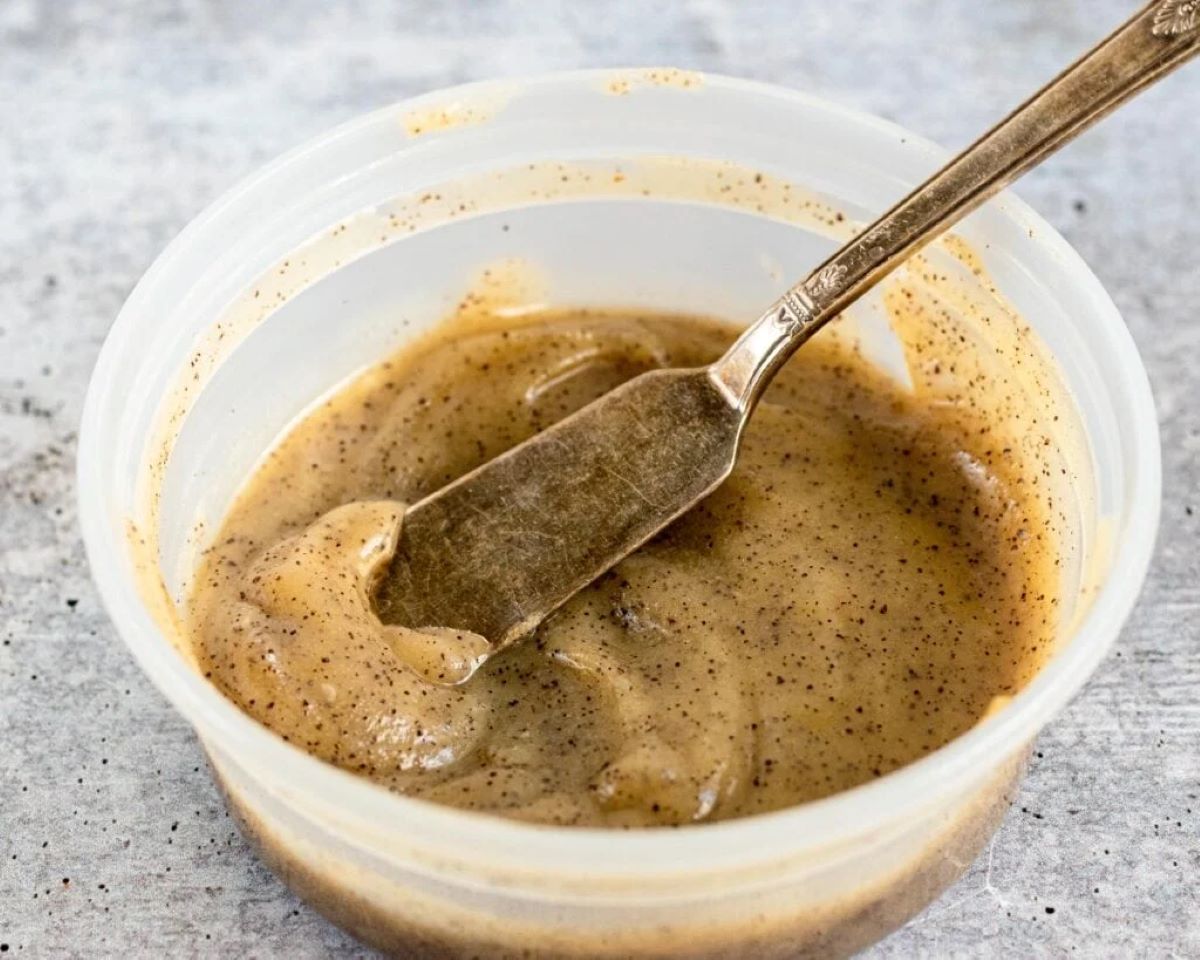
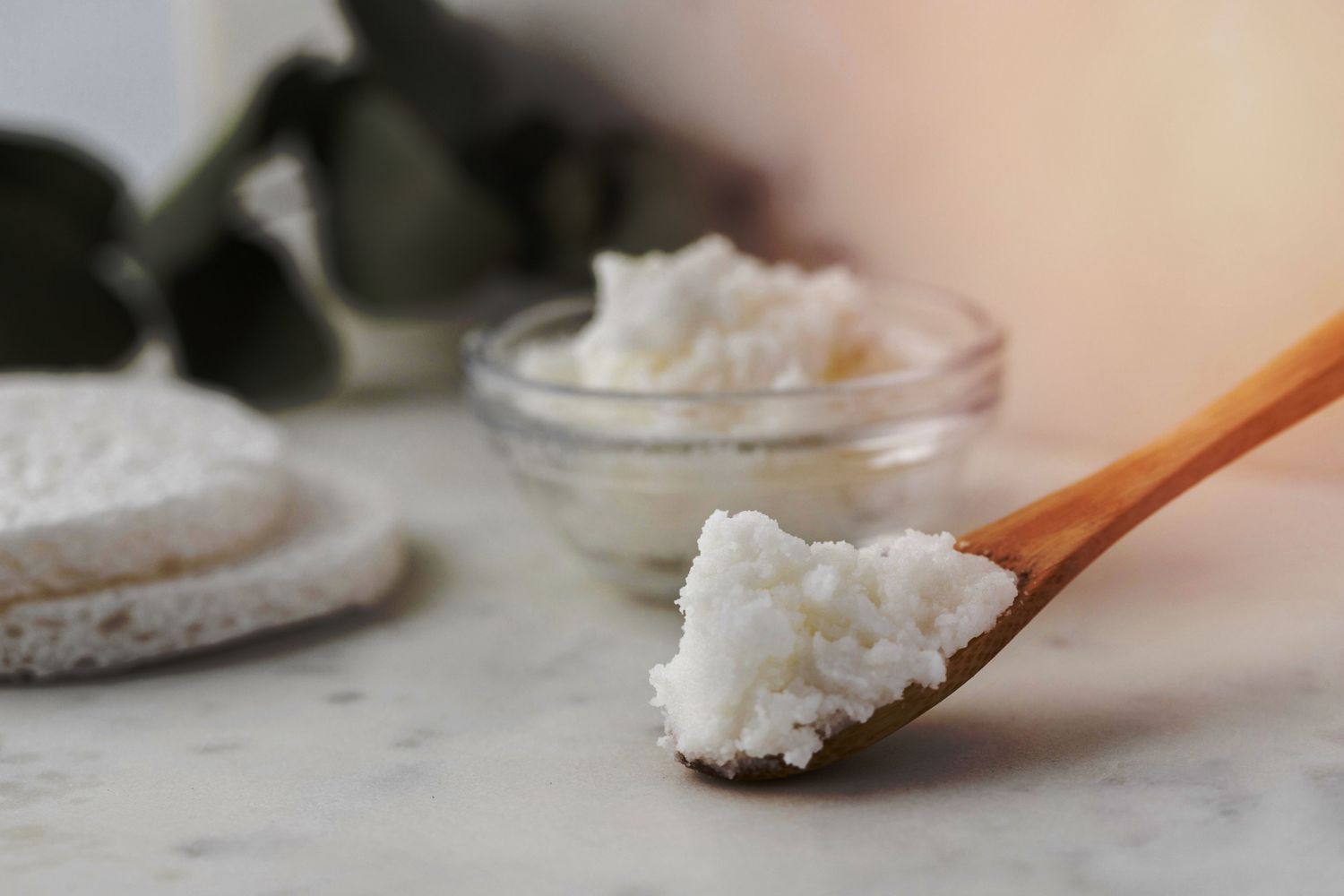
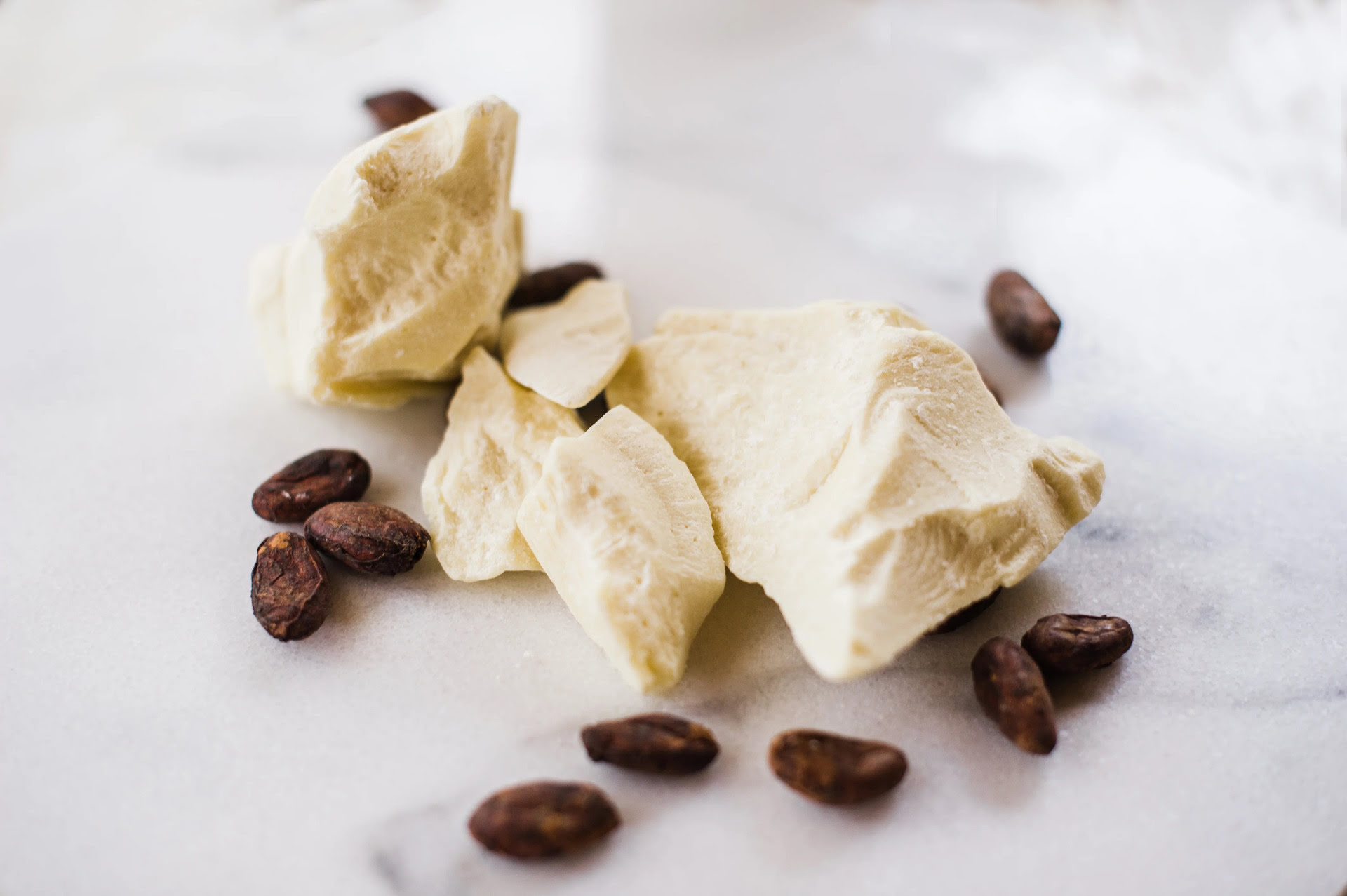
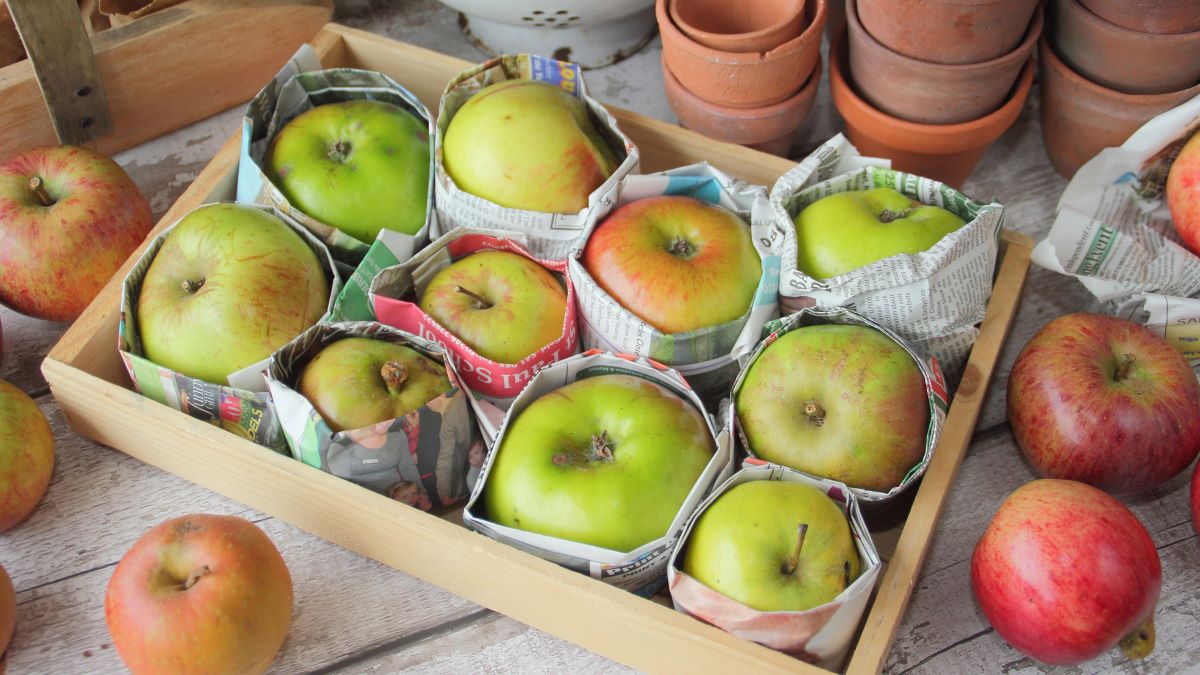


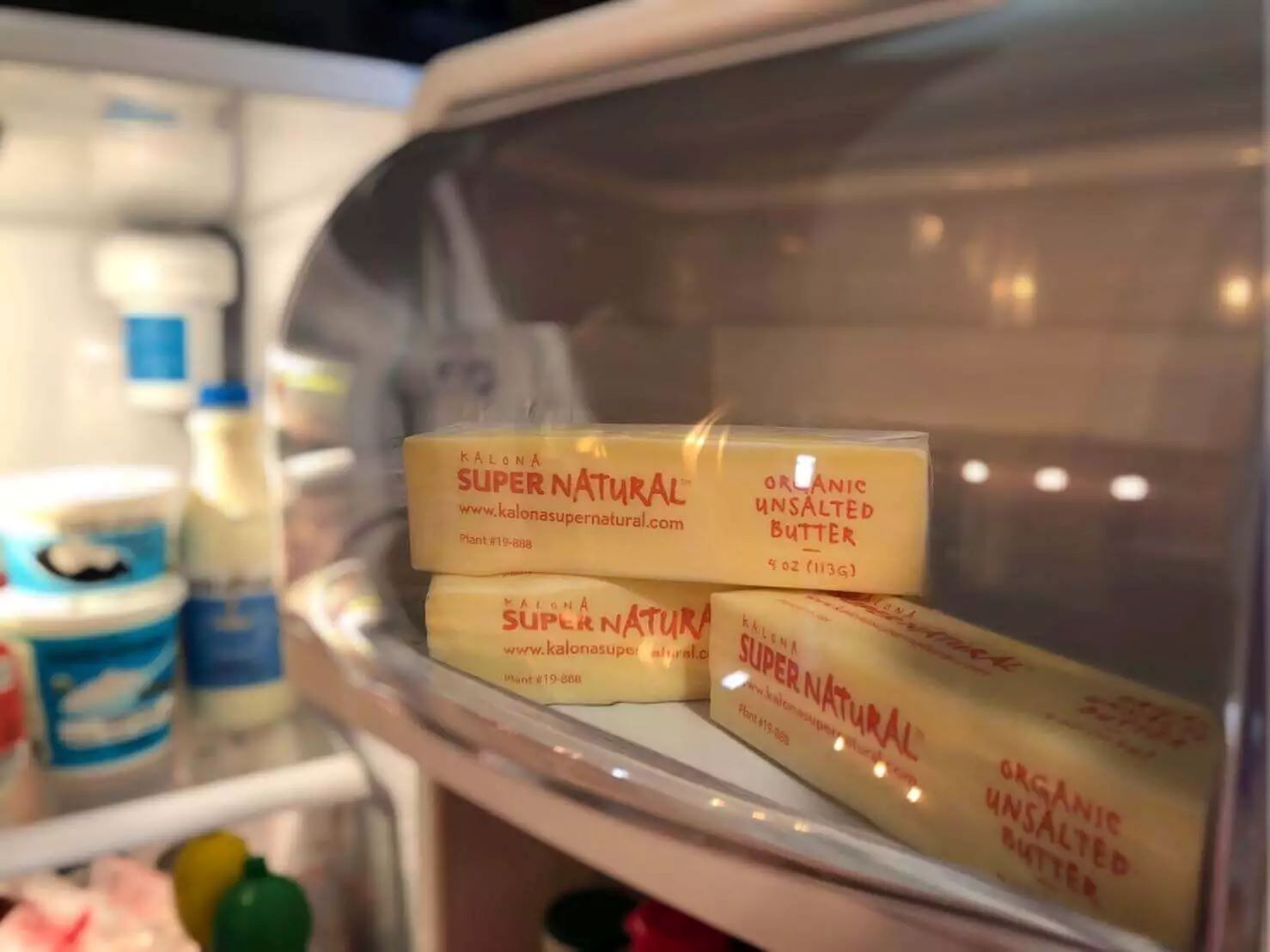

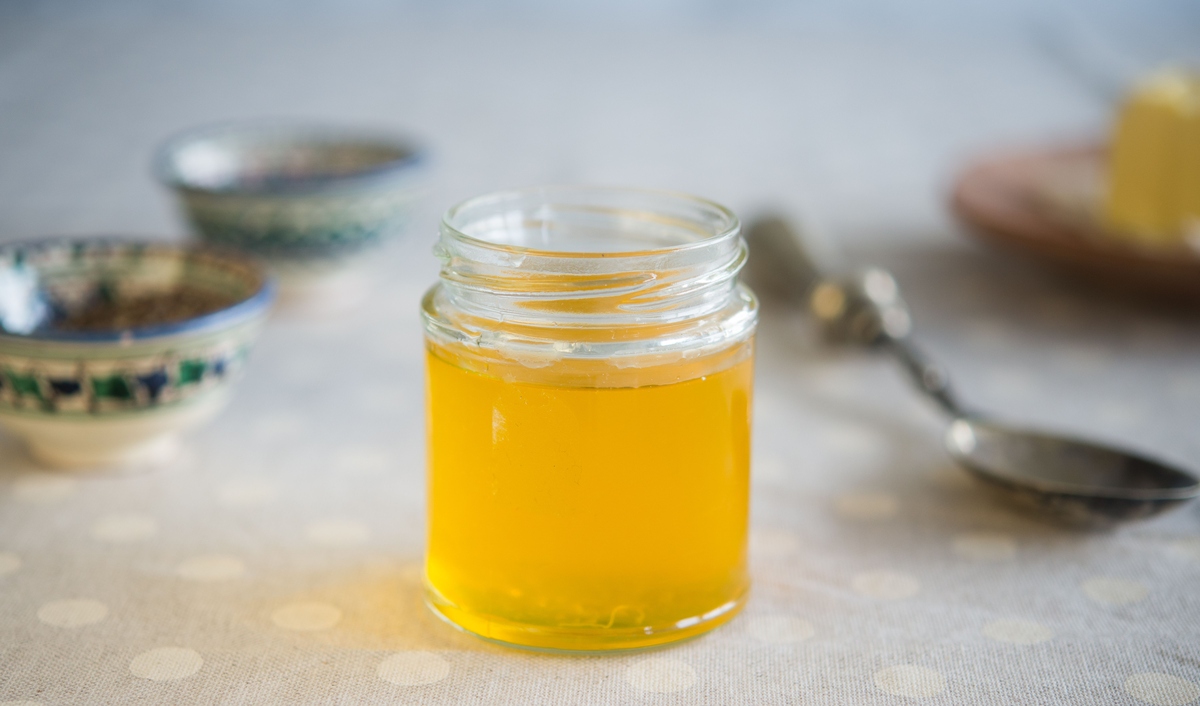




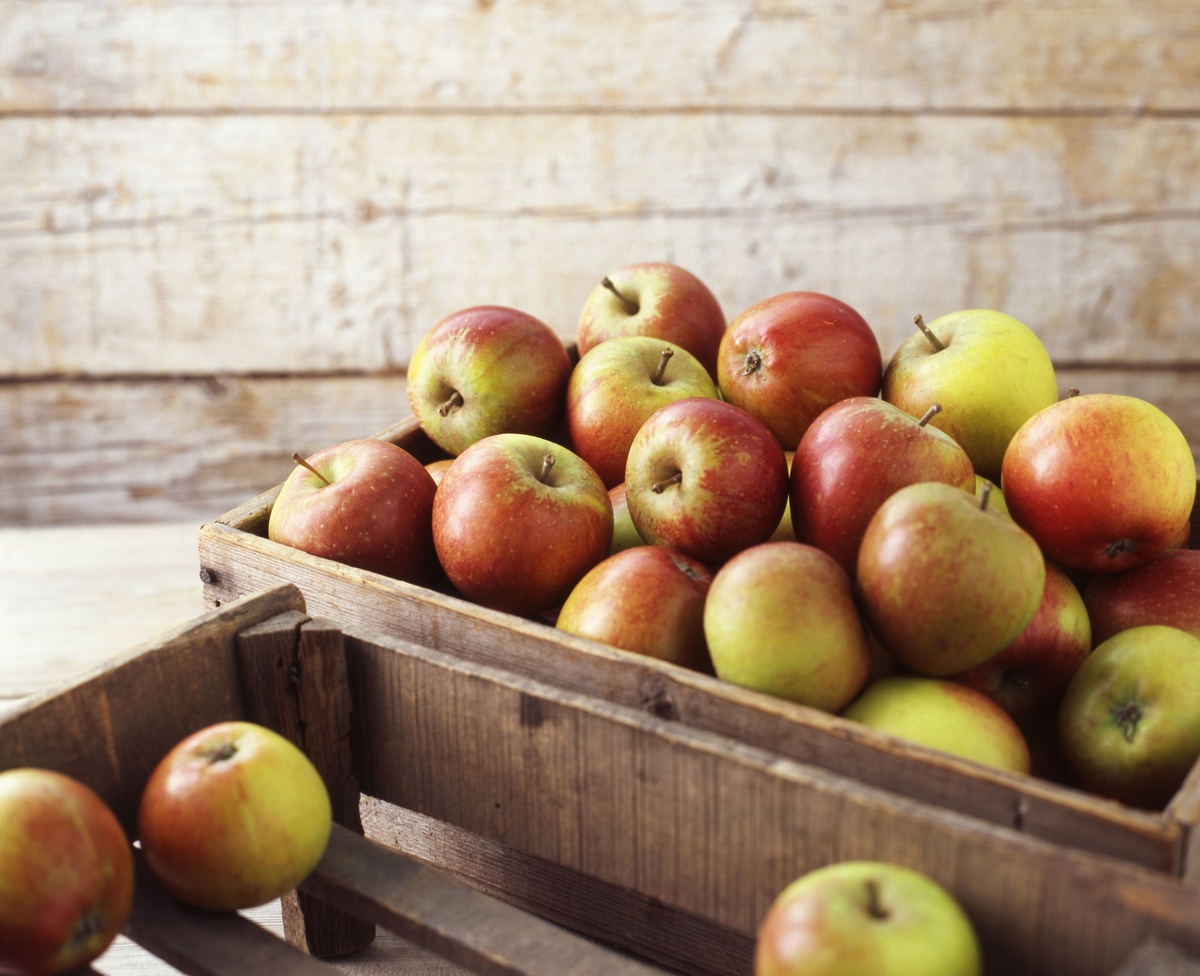

0 thoughts on “How To Store Apple Butter”